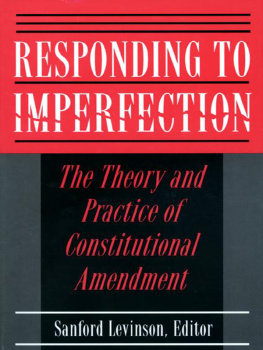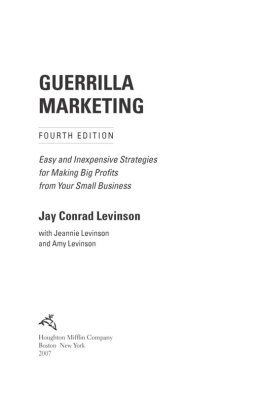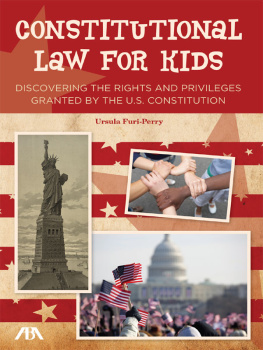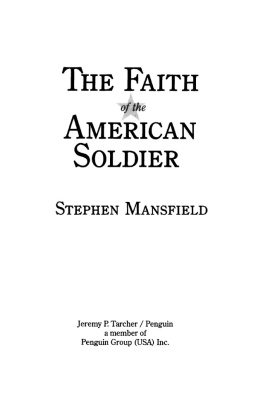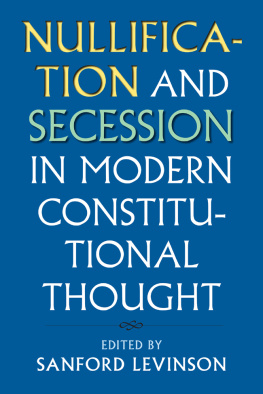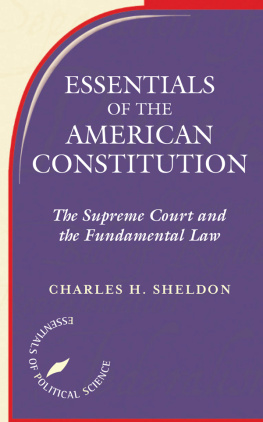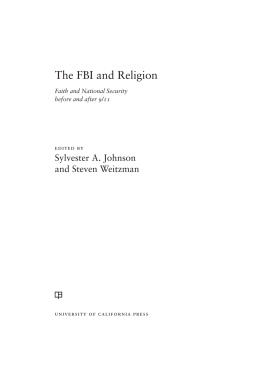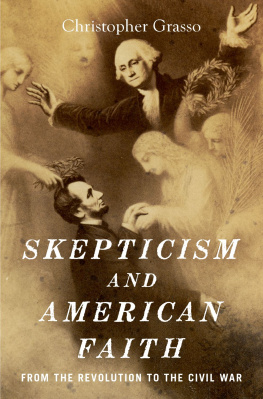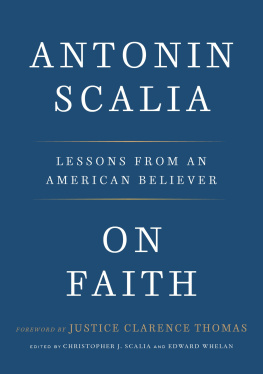Levinson - Constitutional Faith
Here you can read online Levinson - Constitutional Faith full text of the book (entire story) in english for free. Download pdf and epub, get meaning, cover and reviews about this ebook. City: United States, year: 2017, publisher: Princeton University Press, genre: Religion. Description of the work, (preface) as well as reviews are available. Best literature library LitArk.com created for fans of good reading and offers a wide selection of genres:
Romance novel
Science fiction
Adventure
Detective
Science
History
Home and family
Prose
Art
Politics
Computer
Non-fiction
Religion
Business
Children
Humor
Choose a favorite category and find really read worthwhile books. Enjoy immersion in the world of imagination, feel the emotions of the characters or learn something new for yourself, make an fascinating discovery.

Constitutional Faith: summary, description and annotation
We offer to read an annotation, description, summary or preface (depends on what the author of the book "Constitutional Faith" wrote himself). If you haven't found the necessary information about the book — write in the comments, we will try to find it.
Constitutional Faith — read online for free the complete book (whole text) full work
Below is the text of the book, divided by pages. System saving the place of the last page read, allows you to conveniently read the book "Constitutional Faith" online for free, without having to search again every time where you left off. Put a bookmark, and you can go to the page where you finished reading at any time.
Font size:
Interval:
Bookmark:
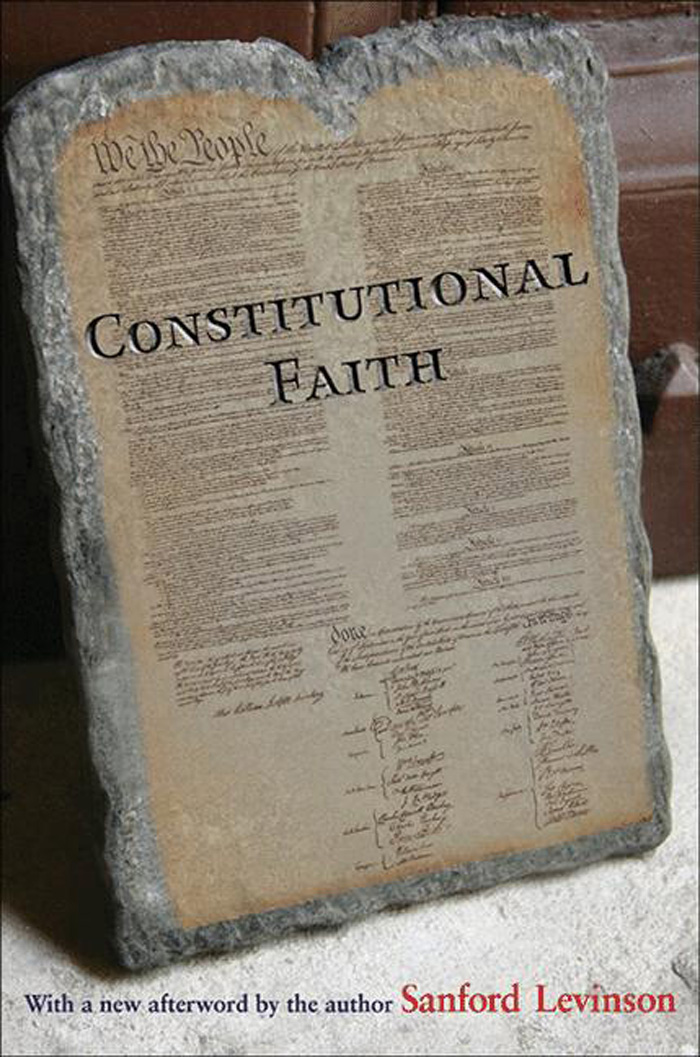
CONSTITUTIONAL FAITH

SANFORD LEVINSON


With a new afterword by the author
PRINCETON UNIVERSITY PRESS
PRINCETON AND OXFORD
Copyright 1988 by Princeton University Press
Published by Princeton University Press, 41 William Street,
Princeton, New Jersey 08540
In the United Kingdom: Princeton University Press, 6 Oxford Street,
Woodstock, Oxfordshire OX20 1TW
press.princeton.edu
All Rights Reserved
First printing, 1988
First paperback printing, 1990
Paperback reissue, with a new afterword, 2011
Library of Congress Control Number: 2011925345
ISBN: 978-0-691-15240-0
British Library Cataloging-in-Publication Data is available
This book has been composed in Linotron Caledonia
Printed on acid-free paper.
Printed in the United States of America
Illustrations by Zevi Blum
1 3 5 7 9 10 8 6 4 2
To Cynthia, for everything (1987)
To Cynthia, for so much more than I ever imagined (2011)
CHAPTER ONE
The Constitution in American Civil Religion
CHAPTER TWO
The Moral Dimension of Constitutional Faith
CHAPTER THREE
Loyalty Oaths: The Creedal Affirmations of Constitutional Faith
CHAPTER FOUR
Constitutional Attachment: Identifying the Content of Ones Commitment
CHAPTER FIVE
The Law School, the Faith Community, and the Professing of Law
CHAPTER SIX
Conclusion: Adding Ones Signature to the Constitution
OVER THE MANY YEARS during which this book was gestating, one of the incentives for its completion was the opportunity I would then have to write an acknowledgments page that would convey my thanks for help to an ever-increasing number of friends and associates. Now the time has come, and I want to take full advantage of that opportunity. With completion has come as well chastening knowledge of the reality undergirding what had, as I read other writers acknowledgments, always seemed to me the cliche that those acknowledged were not responsible for any remaining weaknesses. Along with advice gratefully accepted there remain other suggestions that were unwisely rejected. (The problem, of course, is that I am not wise enough to know which of the rejected suggestions are in that category.) In any event, I am immensely grateful both for the opportunity to work with these many individuals and to the institutions that provided the setting for collaboration.
I begin with the institution that most directly contributed to my completing this work, the Institute for Advanced Study in Princeton, New Jersey, which honored me with membership, half of which was funded by the National Endowment for the Humanities, during 1986-87. The remaining funding came from the University Research Institute of the University of Texas. Without denigrating the importance of the funding, I want to register special gratitude for the almost literally incredible work environment provided at the Institute for Advanced Study; it made the writing of this manuscript a joy. In addition to the institution, I am grateful to several of its members, including Elizabeth Hill Boone, William Connolly, Clifford Geertz, Albert Hirschman, Joan Scott, and Barbara Herrnstein Smith, all of whom read drafts of chapters and discussed them with me. Encouraging words from Carl Schorske and Barbara and Dennis Tedlock early in the year were much appreciated.
One member of the Institute, Michael Walzer, deserves separate mention. He could be listed under almost all of the institutional references to follow: I first met him at Harvard; it was as a teaching fellow in his course at Harvard that I first became obsessed by the problem of pluralism, which in this book is the focus of Chapter Three. Equally important has been my participation with him in a continuing study group organized by the Shalom Hartman Institute on Jewish philosophy. I have never failed to benefit from his insights and ideas for the two decades I have been privileged to know him.
Having begun with my latest institutional debts, I now turn to my earliest one. Though it is now a full quarter-century since I arrived at Harvard as a graduate student in government, I remain under the influence of at least three individuals with whom it was my pleasure to study. Two, sadly, are now dead: Robert McCloskey and Louis Hartz. McCloskey provided an invaluable lesson in how to mix the study of constitutional law and more general American political and social thought. (He was also an extraordinarily decent man who contributed to my having an unusually happy experience as a graduate student.) Hartz provided a model of visionary thinking and absolute fearlessness in making comparisons and connections among thinkers and ideologies. Some worked, some did not, but there was never any doubt that one was stimulated by whatever he said. The third, happily, is still actively contributing to scholarship and intellectual life: Judith Shklar, too, has provided a model of absolute intellectual intensity and integrity that inspires even as it sometimes overwhelms.
After leaving Harvard, I was fortunate to receive a fellowship from the Russell Sage Foundation that allowed me to attend the Stanford Law School. The Law School provided me with both intellectual succor and good fellowship. It also provided me with the opportunity to deepen a personal and professional friendship with Paul Brest, whose traces run especially throughout Chapter One below.
My former colleagues at Princeton University, where I taught between 1975 and 1979, also left tracks that can be found in this book. In particular I wish to thank James Fleming, Amy Gutmann, Will Harris, Stanley Katz, Walter Murphy, Martin Sherwin, and Dennis Thompson. I also benefitted from the counsel of three new members of the Politics DepartmentJennifer Hochschild, Anne Norton, and Jeff Tuliswhom I got to know during my stay at the Institute.
Another Institute, far removed from the United States, must also be mentioned, for this book reflects in many ways my connection with the Shalom Hartman Institute for the Study of Jewish Philosophy, in Jerusalem, Israel. The director of the Institute, David Hartman, and its members all combine a blazing intellectual seriousness with personal decency and moral commitment. What relatively little I know about my own Jewish tradition I owe to the patience of my teachers at the Institute, including, in addition to the inimitable David Hartman, David Dishon, Moshe Halbertal, Menachem Lorberbaum, Zvi Marx, Noam Zion, and Noam and Zvi Zohar. It is also through the Institute and meetings in the United States, Canada, and Israel that I have gotten to know, and benefit from, Sidney Morgenbesser, Michael Sandel, and Alan Silver. The initial draft of Chapter Three was originally prepared for a conference on community membership that was held in Jerusalem in December 1985. One of the participants at that conference was the late Robert Cover, whose work is reflected at points in this book and whose passionate wisdom I, like so many others, will miss for the rest of my life.
Font size:
Interval:
Bookmark:
Similar books «Constitutional Faith»
Look at similar books to Constitutional Faith. We have selected literature similar in name and meaning in the hope of providing readers with more options to find new, interesting, not yet read works.
Discussion, reviews of the book Constitutional Faith and just readers' own opinions. Leave your comments, write what you think about the work, its meaning or the main characters. Specify what exactly you liked and what you didn't like, and why you think so.

